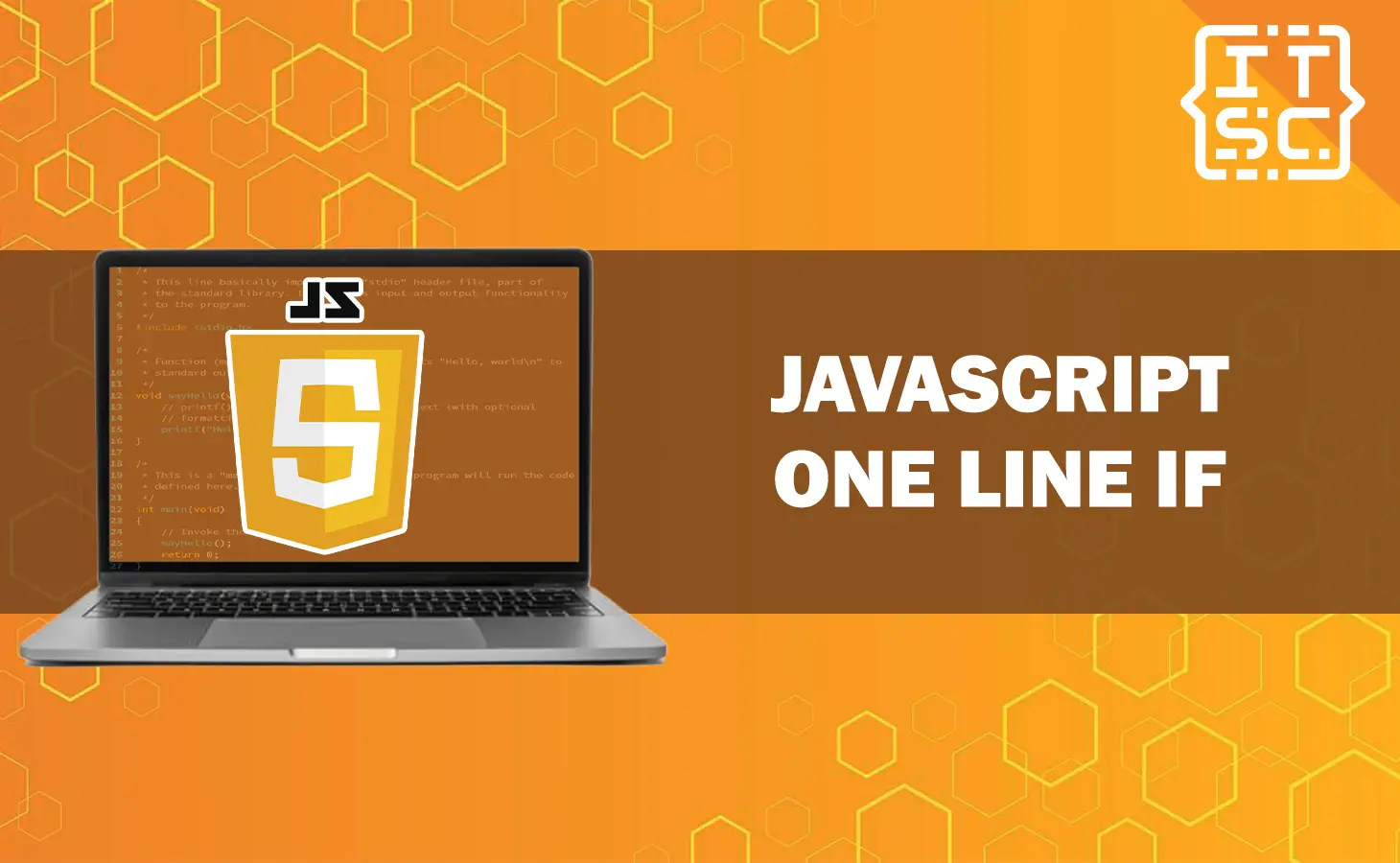In this comprehensive article, we will explore the ins and outs of the JavaScript one line if statement.
We will cover its syntax, use cases, best practices, and how it can contribute to writing cleaner, more readable code.
Whether you’re a beginner or an experienced developer, understanding this powerful technique will elevate your JavaScript skills to the next level.
What is javascript one line if?
The JavaScript one line if statement is a condensed version of the traditional if-else statement. It is often used when you need to perform a simple conditional check and execute a single line of code based on the result.
The basic syntax is as follows:
condition ? expression_if_true : expression_if_false;The condition is the expression that is evaluated for truthiness or falsiness. If the condition evaluates to true, the expression immediately after the ? is executed.
Otherwise, if the condition is false, the expression after the : is executed.
Benefit of Javascript one liner if
One of the primary benefits of using the one line if statement is its ability to simplify code. Instead of writing multiple lines of code for a simple condition, you can achieve the same result in a single line.
Let’s look at an example:
// Traditional if-else statement
let age = 25;
let message;
if (age >= 18) {
message = "You are an adult.";
} else {
message = "You are a minor.";
}The above code can be rewritten using the one line if statement:
let age = 25;
let message = age >= 18 ? "You are an adult." : "You are a minor.";As you can see, the one line if statement reduces the code’s verbosity and makes it more concise.
How to do if statement one line javascript?
The JavaScript one line if statement is a versatile tool that can be used in various scenarios. Let’s explore some common use cases to this:
1. Ternary Operators
The one line if statement is often referred to as the “ternary operator” because it involves three operands: the condition, the expression executed if the condition is true, and the expression executed if the condition is false.
// Ternary operator for checking a boolean value
let isLogged = true;
let statusMessage = isLogged ? "Welcome back!" : "Please log in.";2. Setting Default Values
You can use the one line if statement to set default values for variables if they are undefined or null.
let username; // Value is undefined
let defaultUsername = username || "Guest";3. Short-Circuiting
The one line if statement can help with short-circuiting, where an expression stops being evaluated as soon as the result is determined.
// Avoiding division by zero
let denominator = 0;
let result = denominator !== 0 ? 100 / denominator : "Error: Division bBest Practices for Using JavaScript One Line If
While the JavaScript one line if statement can be a powerful tool, it’s essential to use it judiciously and follow best practices:
1. Keep It Simple and Readable
The primary advantage of the one line if statement is its simplicity. Avoid using complex expressions that may confuse other developers reading your code.
2. Limit to Single Expressions
As the name suggests, the one line if statement is best suited for executing a single expression based on a condition. Avoid using it for lengthy code blocks.
3. Add Parentheses for Clarity
To enhance code readability, consider using parentheses around the conditional expression.
let isReady = true;
let message = (isReady) ? "Ready!" : "Not ready!";4. Avoid Nested Ternary Operators
While you can nest ternary operators, doing so can quickly become unreadable. Opt for regular if-else statements if the logic becomes more complex.
5. Use Comments to Explain Complex Conditions
If your condition involves intricate logic, use comments to explain what it does and why.
let result = (score >= 80) ? "Pass" : /* condition if score is less thaAnyway here are other Javascript functions that can possibly enhance your JavaScript skills.
- What is Javascript serialization? How It Works?
- String Filter JavaScript: Simplifying Data Processing
Conclusion
To conclude, JavaScript one line if statement is a valuable tool for developers seeking to write cleaner and more efficient code. With its concise syntax, it simplifies conditional checks and reduces code verbosity. By understanding its use cases and best practices, you can leverage the power of the one line if statement to improve your JavaScript coding skills.
So, next time you encounter a straightforward condition that requires an if-else statement, consider using the one line if statement to create elegant and concise code snippets.

